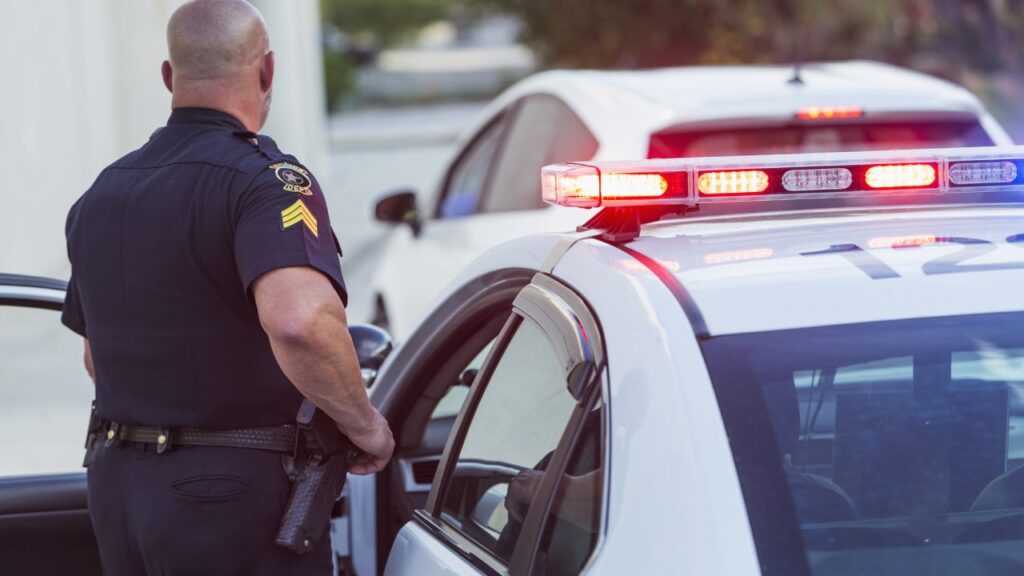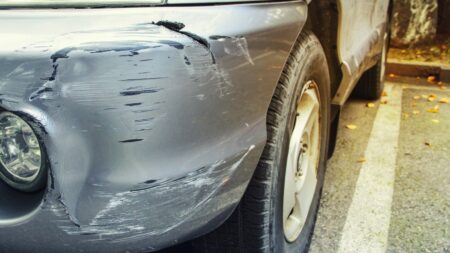On top of legal penalties from a DUI, you might find that your car insurance is significantly more expensive following a Texas DUI conviction. How much does a DUI cost in Texas? On average, you will pay 52 percent more than you would for full coverage with a clean driving record. The average annual cost of car insurance in Texas for a driver with a clean record is $2,637. After a DUI, however, the average cost of full coverage increases to $4,012 per year — which is still significantly less than the national post-DUI average of $4,408.
DUI/DWIs in Texas
According to the Texas Department of Transportation, an average of 89 fatalities occurred each month in 2023 due to alcohol-related car crashes. Not only does drinking and driving pose a danger to those around you, it can cause a fairly large dent in your wallet. Between a spike in car insurance rates and state fines and penalties, the true cost of a DUI adds up fast and can impact your personal finances for years.
Unlike other states, Texas relegates DUI offenses only to drivers under the age of 21. All other drivers would receive citations for DWIs — driving while intoxicated. This depiction is important because minors are not legally allowed to drink at all, but adults over 21 can legally drive after drinking, but only if their BAC is below 0.08 and it does not impact their mental or physical state.
DWI laws in Texas
Texas penal code, title 10 chapter 29 clearly outlines what the state considers legal intoxication. A person is deemed intoxicated if they have a blood alcohol concentration (BAC) at or above 0.08 or do not have normal use of their mental or physical faculties due to alcohol, controlled substances, drugs or any other substance. You may be cited for a DUI or a DUI while operating any of the following:
- Motor vehicle
- Watercraft (any device propelled on water)
- Amusement ride
- Mobile amusement ride
First DWI conviction:
- Fine up to $2,000
- Minimum of three days in jail, up to 180 days
- License suspension for up to a year plus a $100 reinstatement fee
Second DWI conviction:
- Fine up to $4,000
- Additional state fine of $3,000 upon conviction occurring within 36 months of the prior DUI
- Up to one year of jail time
- License suspension for up to two years plus a $100 reinstatement fee
Third DWI conviction:
- $10,000 fine
- Additional state fine of $4,500 upon conviction occurring within 36 months of the prior one
- Up to two years in prison
- Licenses suspension for up to two years plus a $100 reinstatement fee
DWI with a child in the vehicle:
- Additional charge of child endangerment if driving with a child under the age of 15
- An additional fine of $10,000
- An extra 180 days added to the existing license suspension
- Possible jail time between two and 10 years
In addition to the penalties listed above, the state fines drivers $6,000 for either a fourth DWI that occurs within 36 months of the third conviction or a driver with a BAC level of 0.15 or more.
DUI penalties for underage drinkers in Texas
Underage drinkers caught driving in Texas have slightly different penalties depending on their age and BAC levels. This is because it is illegal for anyone under the age of 21 to drink alcohol. So, even if a minor amount of alcohol is deducted, they may receive a DUI.
Drivers under 21 with any alcohol in their system may have the following penalties:
- Up to a $500 fine
- Possible license suspension for up to 60 days
- Must attend awareness classes
- May need to serve between 20 and 40 hours of community service
Drivers over the age of 17 with a BAC at or above 0.08 may receive the following penalties:
- Fine up to $2,000
- Between three and 180 days in jail
- License suspension between 90 days and a year
Additionally, anyone who is caught providing alcohol to someone under 21 could possibly be fined up to $4,000 and have up to a year in jail time.
How does a DWI/DUI affect car insurance in Texas?
Obtaining car insurance after a DUI or DWI in Texas is possible, but it will usually cost you significantly more, and you may need to switch insurance companies. You may be required to carry an SR-22, which is a certificate of financial responsibility, for up to two years (but it is not available with every insurance company).
When you get a DUI or DWI in Texas, car insurance companies categorize you as a high-risk driver, and you will likely see a significant rate spike that can last up to three years. Insurers are in the business of calculating and mitigating risk. Drivers with a history of drinking and driving tend to repeat the behavior and are more likely to cause accidents with higher fatality rates. The annual average car insurance rate in Texas is $2,637 for full coverage. After a DUI, the rate jumps by about 52 percent to $4,012 per year.
Cheap auto insurance after a DWI/DUI in Texas
Searching for cheap car insurance companies after receiving a DUI or DWI can be difficult, but not impossible. Not all insurers rate driving activity the same way. By comparing car insurance rates and coverage among different carriers, you may find one that better aligns with your car insurance budget.
To save you some time, Bankrate’s editorial team has done some of that work for you. Below are some of the cheapest car insurance companies in Texas that offer full coverage car insurance to drivers with a DUI/DWI infraction.
| Company | Avg. rate before DUI | Avg. rate after DUI | % increase |
|---|---|---|---|
| Geico | $1,667 | $2,349 | 41% |
| National General | $2,248 | $2,613 | 16% |
| State Farm | $1,871 | $2,766 | 48% |
| USAA | $1,895 | $2,787 | 47% |
| Mercury Insurance | $2,215 | $2,920 | 32% |
How to find affordable car insurance in Texas after a DUI
- Search for discount opportunities: Some insurance companies allow drivers with DUIs or DWIs to complete a defensive driving course. However, drivers who are required to take the course are usually not eligible for the defensive driving discount. Instead, consider other discounts such as bundling, telematics or even the good student discount if you are eligible. Speaking with an agent can help you discover what options are available.
- Switch to a nonstandard carrier: Insurance companies that specialize in car insurance for high-risk drivers may be able to offer you a lower rate than a carrier catering to preferred or standard drivers. Not all insurance companies rate driving activity the same, and joining a company with other high-risk drivers may make your driving activity less risky by comparison.
- Improve your credit score: Texas is a state that allows credit-based insurance score models. Car insurance for drivers with bad credit costs an average of 114 percent more for full coverage insurance than for drivers with good credit. While improving your credit score isn’t an easy fix, it will pay off down the line.
Frequently asked questions
Methodology
Bankrate utilizes Quadrant Information Services to analyze April 2024 rates for all ZIP codes and carriers in all 50 states and Washington, D.C. Rates are weighted based on the population density in each geographic region. Quoted rates are based on a 40-year-old male and female driver with a clean driving record, good credit and the following full coverage limits:
- $100,000 bodily injury liability per person
- $300,000 bodily injury liability per accident
- $50,000 property damage liability per accident
- $100,000 uninsured motorist bodily injury per person
- $300,000 uninsured motorist bodily injury per accident
- $500 collision deductible
- $500 comprehensive deductible
To determine minimum coverage limits, Bankrate used minimum coverage that meets each state’s requirements. Our base profile drivers own a 2022 Toyota Camry, commute five days a week and drive 12,000 miles annually.
These are sample rates and should only be used for comparative purposes.
Incidents: Rates were calculated by evaluating our base profile with the following incidents applied: clean record (base) and single DUI conviction.
Read the full article here
















